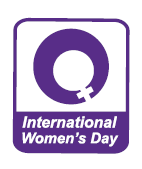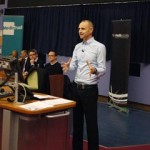Guardian editor Alan Rusbridger raised what he said was a little known fact about phone hacking evidence, in yesterday’s press regulation debate in the House of Lords.
He had been told by Metropolitan Police Assistant Commissioner Yates, he said, that the police only considered the interception of phone messages an offence if they hadn’t been listened to.
Once messages were stored after they were listened to by the recipient, subsequent access by a third party was not considered a criminal offence. The public should be aware of the “narrow definition” of phone hacking, the Guardian editor warned.
As reported in last week’s Culture, Media and Sport select committee report:
“The police also told us that under Section 1 of the Regulation of Investigatory Powers Act (RIPA) it is only a criminal offence to access someone’s voicemail message if they have not already listened to it themselves. This means that to prove a criminal offence has taken place it has to be proved that the intended recipient had not already listened to the message. This means that the hacking of messages that have already been opened is not a criminal offence and the only action the victim can take is to pursue a breach of privacy, which we find a strange position in law.”
The committee recommended that “Section 1 of the Regulation of Investigatory Powers Act is amended to cover all hacking of phone messages”.
“Narrow definition” line is a “convenient PR shelter for Scotland Yard”, argues Davies
The Guardian’s evidence of widespread phone hacking attempts contradicted police reports that only a ‘handful’ of victims had been targeted, so Scotland Yard is trying to “justify its position” by raising the narrow legal definition of the criminal offence, Guardian journalist Nick Davies told Journalism.co.uk.
Davies also challenges the legality of any kind of phone hacking:
“The narrow legal definition is highly contentious. The idea is that it is illegal to listen to somebody’s voicemail only if they have not themselves already heard it. This not written in the law at all; it was clearly not parliament’s intention. It’s an interpretation – not one that has been tested and accepted by a court, simply something that was said during a legal conference at the Crown Prosecution Service while the police were investigating the original case.
“It was said by David Perry, Crown counsel in the case, but he didn’t even produce a written opinion and never mentioned it in court when [Clive] Goodman and [Glenn] Mulcaire came up.” A future court may or may not agree with this definition, Davies added. “At the moment, however, it is a convenient PR shelter for Scotland Yard who are embarrassed by their handling of the case.”
Satchwell claims phone hacking case has ‘grey areas’; challenges Guardian’s proof
The liveliest part of yesterday’s House of Lords debate came when executive director of the Society of Editors, Bob Satchwell, challenged some of the Guardian’s claims and insisted there were “grey areas” in the case.
Journalist Nick Davies vehemently disagrees: the black and white is there, he later told Journalism.co.uk, but newspapers and the Press Complaints Commission don’t want to see it.
“Satchwell says editors don’t know the truth about all the material confiscated by the Information Commissioner’s Office from [private investigator] Steve Whittamore in March 2003 because the ICO didn’t investigate it. That isn’t correct.
“The ICO analysed all the material and produced spreadsheets – one for each newspaper organisation – and the spreadsheets lists all of the journalists who asked Whittamore to find confidential information, all of the targets, all of the information requested, how it was obtained, how much was paid.
“The ICO and police worked together to prepare three court cases: one led to four convictions, the other two collapsed for technical reasons. You really can’t say that there wasn’t an investigation. Furthermore, when the new information commissioner, Christopher Graham, gave evidence to the media select committee, he said he would not publish the spreadsheets, but he clearly indicated his willingness to talk to any editor who got in touch in search of detail.”
No editor has asked for extra information from ICO
“I checked last week with the ICO as to how many editors had now got in touch to ask which of their journalists are named in the spreadsheets and also to ask whether the PCC had approached them and asked for information,” said Davies.
“The answer was that no editor and nobody from the PCC had asked.” Furthermore, Davies said, he had written detailed stories about the contents of the spreadsheets.
“So, if editors are still in a grey area on all this, it’s because they refuse to look at the facts in black and white, even though the facts are there for them.”
 To mark the occasion, Sky News is having a day of female-led broadcasting. The broadcaster announced:
To mark the occasion, Sky News is having a day of female-led broadcasting. The broadcaster announced:
